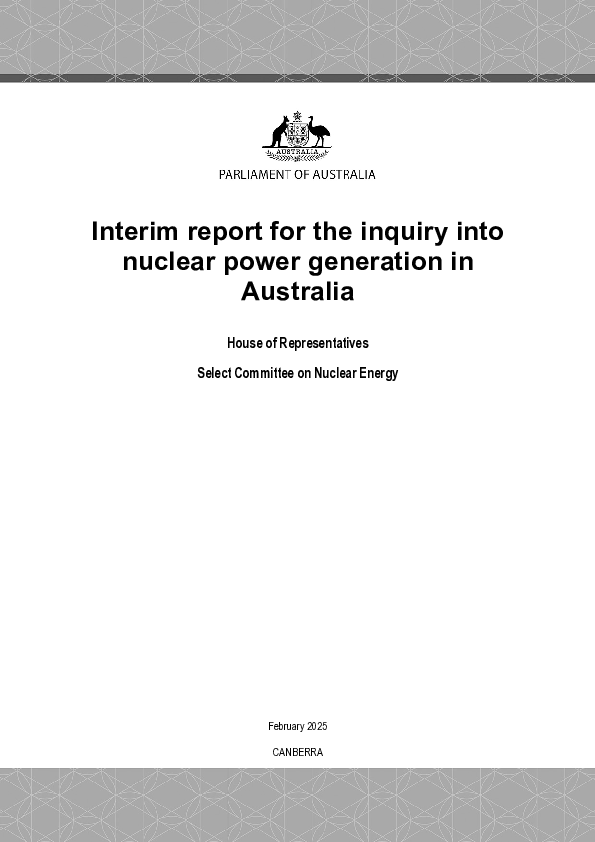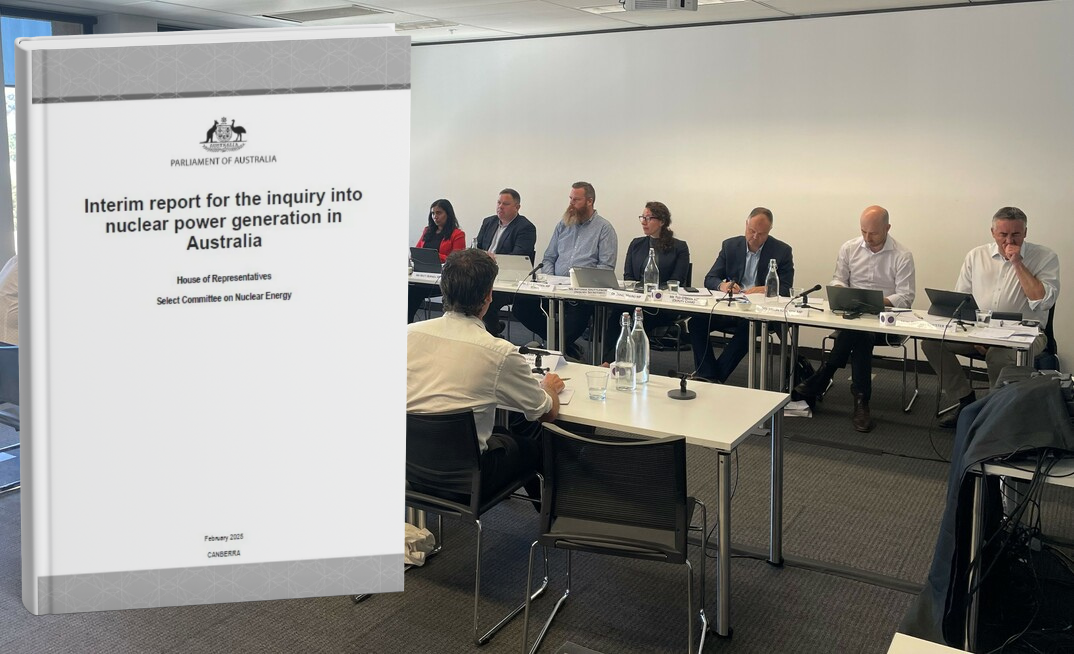The federal opposition has rubbished an interim interim report from the House of Representatives Select Committee on Nuclear Energy, published as part of its inquiry into nuclear power generation in Australia, calling it a "sham."
In a statement issued on behalf of the shadow minister for climate change and energy Ted O'Brien, the shadow minister for regional education Darren Chester and the shadow minister for regional education Simon Kennedy, the opposition said "The Albanese Government's interim report on its nuclear energy inquiry is nothing more than a sham—a politically motivated stunt designed to mislead Australians, cover up Anthony Albanese and Chris Bowen's failing energy plan, and to distract from skyrocketing power prices on the eve of an election.
"Labor's so-called inquiry was rigged from the start. Stacked with government-picked members and scoped to deliver a predetermined outcome, it was never about facts—it was about propping up Labor's failing energy fantasy."
In releasing the report the chair of the committee, the Federal Member for Hunter Dan Repacholi said: "From the evidence considered by the Committee to date, it is apparent that it could be well into the 2040s before we might see nuclear energy generated in Australia if that form of energy generation were to be pursued.
YOU MIGHT ALSO LIKE

"This would be too late to meaningfully support the achievement of Australia's climate and energy targets or to help our coal power plant workforce and communities as we transition away from coal power.

"We also heard that nuclear power is more expensive than the alternatives both to build and to use. As a country with no previous nuclear power experience, we were told that Australia could experience a 100 per cent premium on the estimated cost to build nuclear reactors – a cost that taxpayers would likely have to pay." he said.
As reported in ENB, the Senate Committee was established to inquire into and report on the consideration of nuclear power generation, including deployment of small modular reactors, in Australia.
The Committee held 19 public hearings across Australia and heard from a range of stakeholders, including hearing evidence on the recommended approach for deploying nuclear power generation if prohibitions on nuclear power in Australia lifted.
Evidence was also received from representatives of Australia's science, energy and climate sectors — including federal government agencies responsible for Australia's existing nuclear activities — who advised on key considerations and challenges for deployment in the Australian context. Many stakeholders, including First Nations, environment and community groups, commented on social licence issues for deploying nuclear power in Australia.
Repacholi stated: "This interim report focuses on two key issues that have dominated the evidence we've received to date: whether nuclear power generation could be rolled out in Australia in an acceptable timeframe, and how affordable it would be – particularly compared to alternative power generation technologies currently available in Australia."
On the question of small nuclear reactors, Repacholi reflected: "Given they are still in the conceptual design stage and are not commercially available, small nuclear reactors simply don't measure up as a viable option for powering Australia in the foreseeable future compared to proven solar and wind technologies which are already being rolled out and generating power."
Mia Pepper, the campaigns director at the Conservation Council of WA (who gave evidence at the inquiry hearing in Perth in December), said the report shows nuclear power has no future in Australia.

"The inquiry has highlighted how much is missing from Peter Dutton's nuclear push - there's no plan from the Liberals on what this means for taxpayers, for WA jobs, for the existing transition plans, for insurance, there are no details about exclusion zones and evacuation zones, the costings are fanciful and there's been no evaluation of the technical suitability of coal sites."
"In a cost-of-living crisis Dutton's nuclear plan is the worst possible outcome – it will drive up power prices, lock in fossil fuels for longer, and slow investment in renewables which are faster, cheaper and cleaner."
Nuclear for Australia said they were disappointment the enquiry had missed an opportunity to give Australians the facts they need about modern nuclear technology.
"Australians are struggling with skyrocketing power bills while being denied access to the same clean energy technology used by almost every other developed nation," said Will Shackel, spokesperson for Nuclear for Australia.
"This inquiry was designed from the start to deliver a predetermined outcome, rather than an honest assessment of nuclear power's potential to deliver affordable, reliable power to Australian homes and businesses."
The Australian Conservation Foundation's nuclear analyst Dave Sweeney said: "This report has found – like so many inquiries before it have found – that nuclear is not right for Australia.
"For as little as one-tenth of the cost of Mr Dutton's nuclear plan, the federal government could install reliable, effective solar on every Australian home that does not already have it.
"Australia's insurance sector has made it clear its policies do not cover nuclear accidents. If something atomic goes wrong, you – and your home – are on your own.
"Going nuclear would increase power bills across the country and keep polluting coal-fired power stations open for longer, adding an extra 2 billion tonnes of climate pollution to the atmosphere – the equivalent of 200 years of Australia's emissions from aviation.
"The Coalition appears more focussed on gaining political power than securing electrical power.























